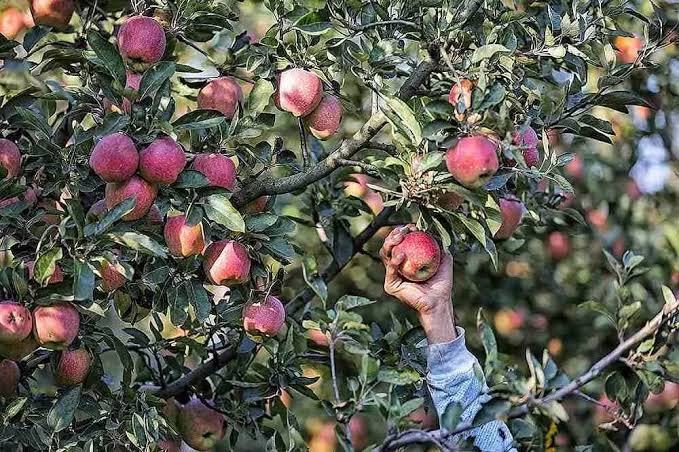Kashmir’s apple growers sound alarm over unprecedented dry spell

Kashmir’s apple growers sound alarm over unprecedented dry spell
Srinagar: It is the peak winter season in Kashmir and 55-year-old Ghulam Nabi Khan of Baramulla spends most time of the day in his orchards.
Worried about the snowless winter so far, he is considering irrigating his orchards, which require immediate watering.
“The current dry weather is giving a tough time to farmers. It usually snows during December but now we are witnessing dry weather since November,” he told news agency—Kashmir News Observer (KNO).
As Kashmir grapples with an unusual and prolonged dry winter season, apple growers in the region are expressing growing concerns about the potential impact on their orchards.
The absence of customary snowfall and the dry spells are raising alarms among farmers who heavily depend on the winter climate for the successful cultivation of apples.
President North Kashmir Apple Growers Association said the current snowless dry weather will adversely impact the apple orchards.
“The next 15 days are crucial for farmers. If it doesn’t snow in Kashmir during the next two weeks, our orchards will suffer heavily. It is during the winter time that our soil retains moisture, which is important for the health of apple trees and the quality of fruits,” he said.
Malik said the abundant snowfall during Chillai Kalan ensures proper irrigation to the orchards during summertime. “We have witnessed for the last many years that Kashmir doesn’t get abundant rainfall during summer time. So, the proper flow of water from glaciers would irrigate our orchards. We depend on the snowfall for water supply during summer time,” he said.
Malik said the fruit quality deteriorates with less or no snowfall.
Pertinently, December last year witnessed a 79 percent deficit in rainfall.
Irshad Ahmad Bhat, an expert said the prolonged dry spell makes apple trees vulnerable to diseases.
“With a snowless winter, there is concern about the potential increase in pests and diseases that could affect the apple orchards, requiring vigilant monitoring and management,” he said—(KNO)





